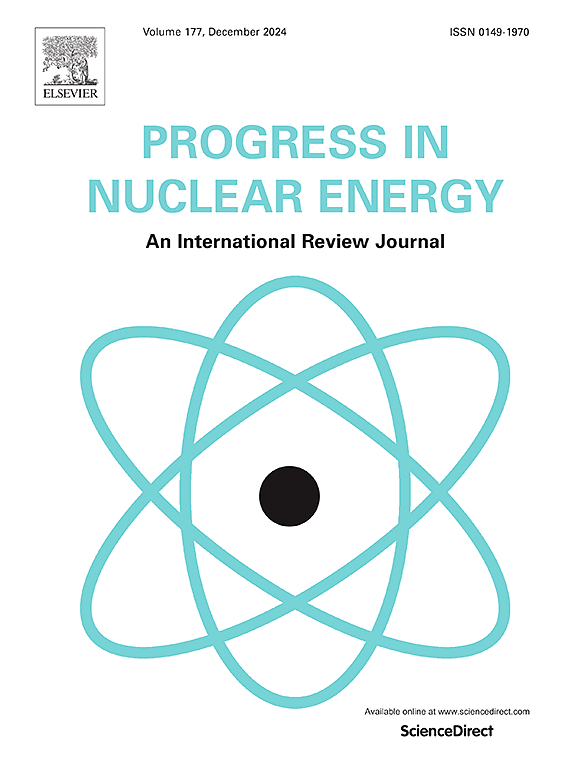A new iterative method based on the Q-iteration method for robust and rapid determination of concentration distribution in multicomponent separation cascades
IF 3.3
3区 工程技术
Q1 NUCLEAR SCIENCE & TECHNOLOGY
引用次数: 0
Abstract
Determining the concentration distribution of mixtures of multiple isotopes in separation cascades is a common task in cascade analysis and design. The robustness and efficiency of the computational method are crucial, particularly for cascade optimization. The Q-iteration method is well known for its simplicity, robustness, and rapid convergence and applies to various cascades. However, extensive experience in computation with the Q-iteration method revealed three drawbacks in certain cases: difficulties in selecting a suitable relaxation factor and appropriate update direction, as well as insufficient convergence speed. This paper analyzes the convergence properties of the Q-iteration method and its associated drawbacks and, based on the Q-iteration method, proposes a novel iterative approach, termed Minimal Residuals Q-iteration method (MR Q-iteration method), utilizing the gradient information of to determine the update direction and step size at a low computational cost. Three typical cascade cases, each representing one of the drawbacks, are computed to compare the performances of both the Q-iteration method and the MR Q-iteration method. The results demonstrate that the new method effectively resolves the three drawbacks and has improved robustness and faster convergence compared to the Q-iteration method, while retaining its simplicity.
求助全文
约1分钟内获得全文
求助全文
来源期刊

Progress in Nuclear Energy
工程技术-核科学技术
CiteScore
5.30
自引率
14.80%
发文量
331
审稿时长
3.5 months
期刊介绍:
Progress in Nuclear Energy is an international review journal covering all aspects of nuclear science and engineering. In keeping with the maturity of nuclear power, articles on safety, siting and environmental problems are encouraged, as are those associated with economics and fuel management. However, basic physics and engineering will remain an important aspect of the editorial policy. Articles published are either of a review nature or present new material in more depth. They are aimed at researchers and technically-oriented managers working in the nuclear energy field.
Please note the following:
1) PNE seeks high quality research papers which are medium to long in length. Short research papers should be submitted to the journal Annals in Nuclear Energy.
2) PNE reserves the right to reject papers which are based solely on routine application of computer codes used to produce reactor designs or explain existing reactor phenomena. Such papers, although worthy, are best left as laboratory reports whereas Progress in Nuclear Energy seeks papers of originality, which are archival in nature, in the fields of mathematical and experimental nuclear technology, including fission, fusion (blanket physics, radiation damage), safety, materials aspects, economics, etc.
3) Review papers, which may occasionally be invited, are particularly sought by the journal in these fields.
 求助内容:
求助内容: 应助结果提醒方式:
应助结果提醒方式:


